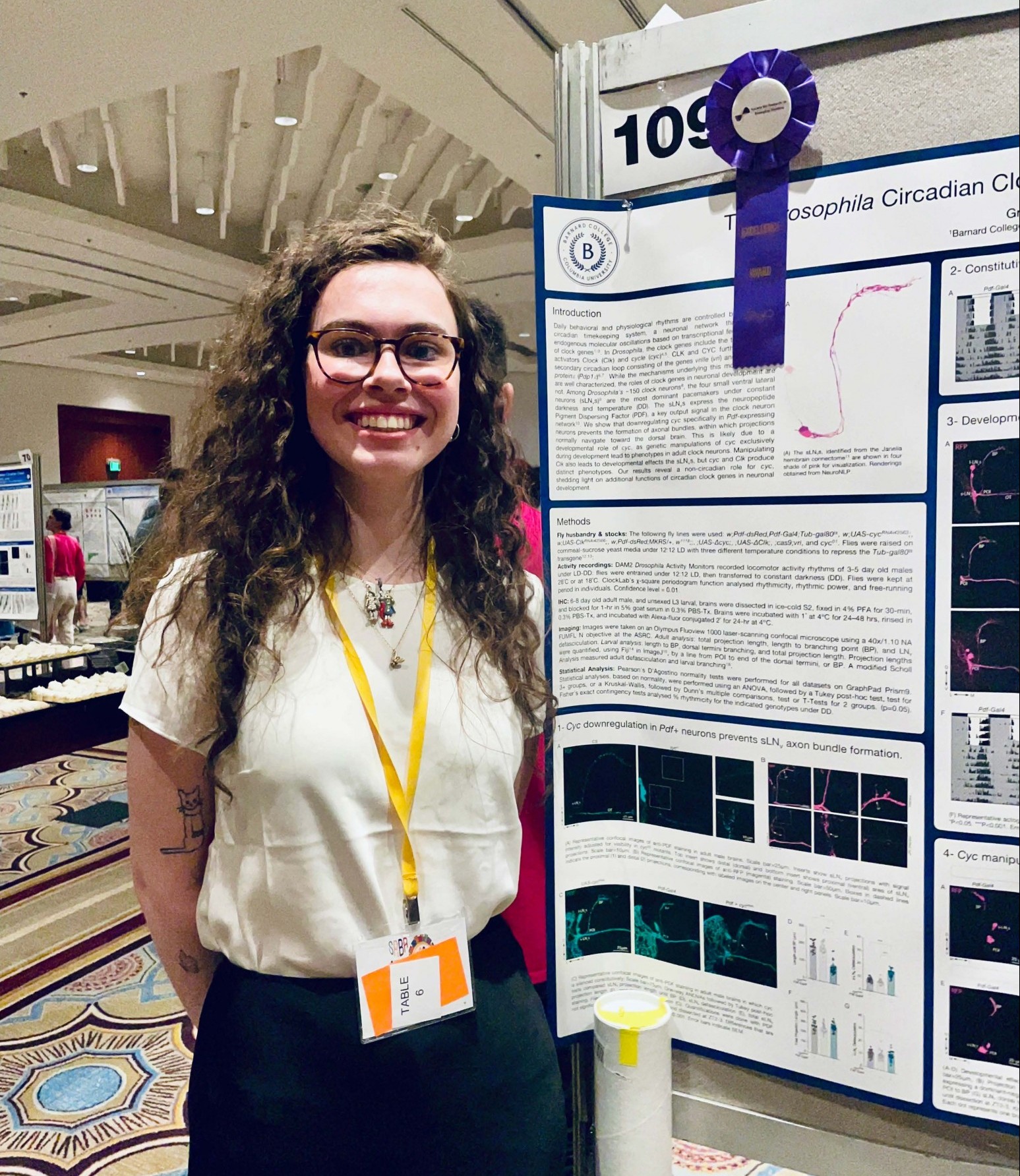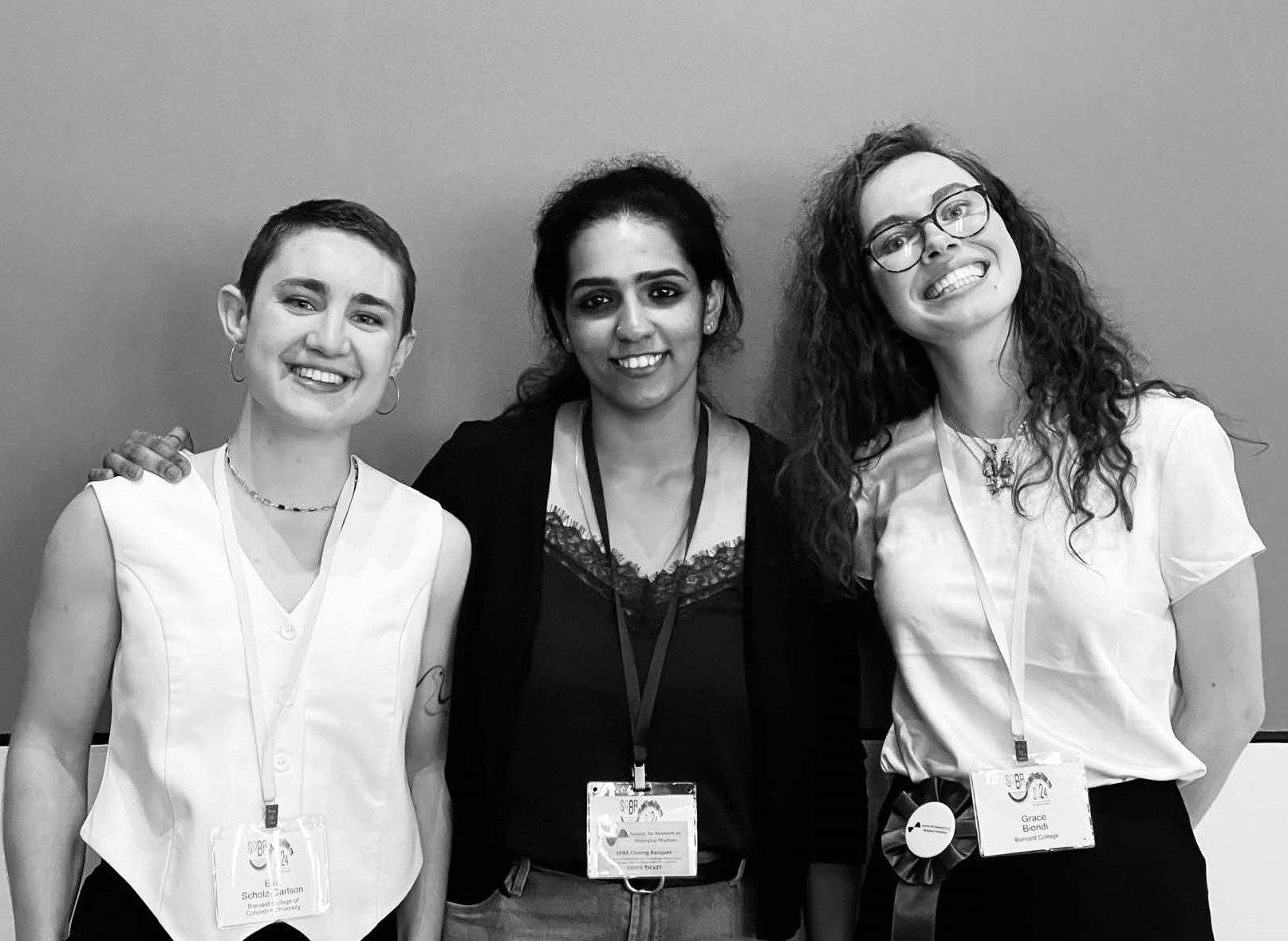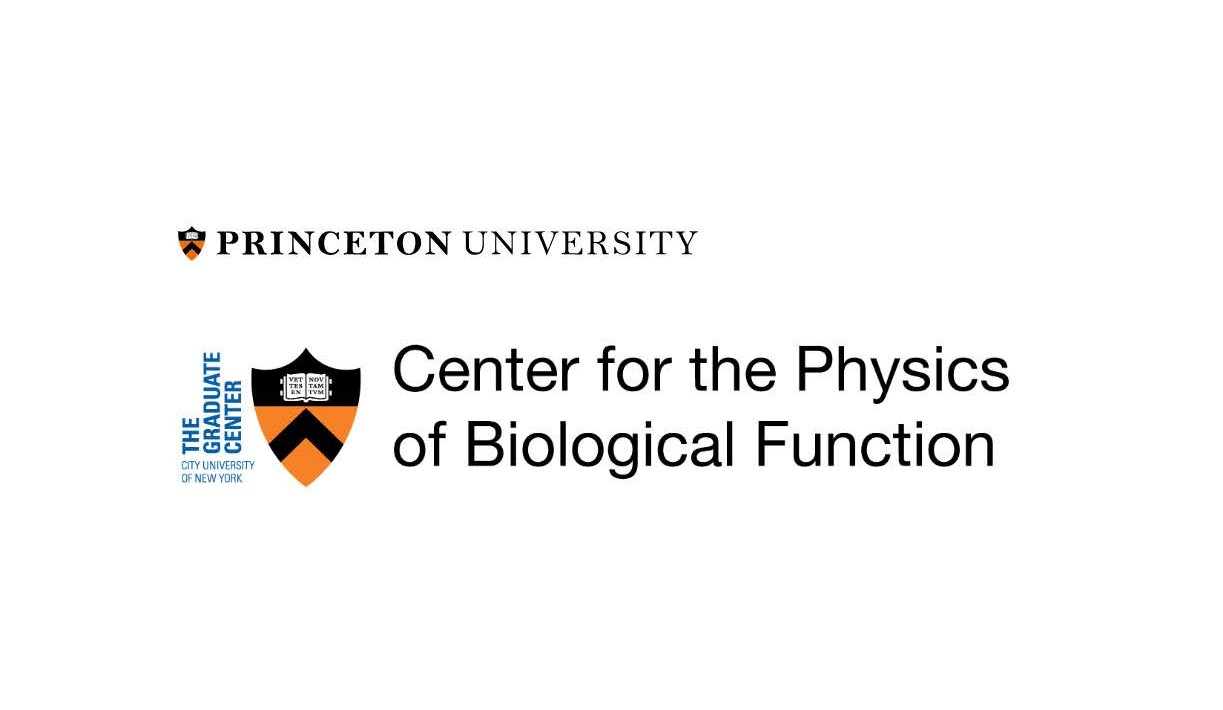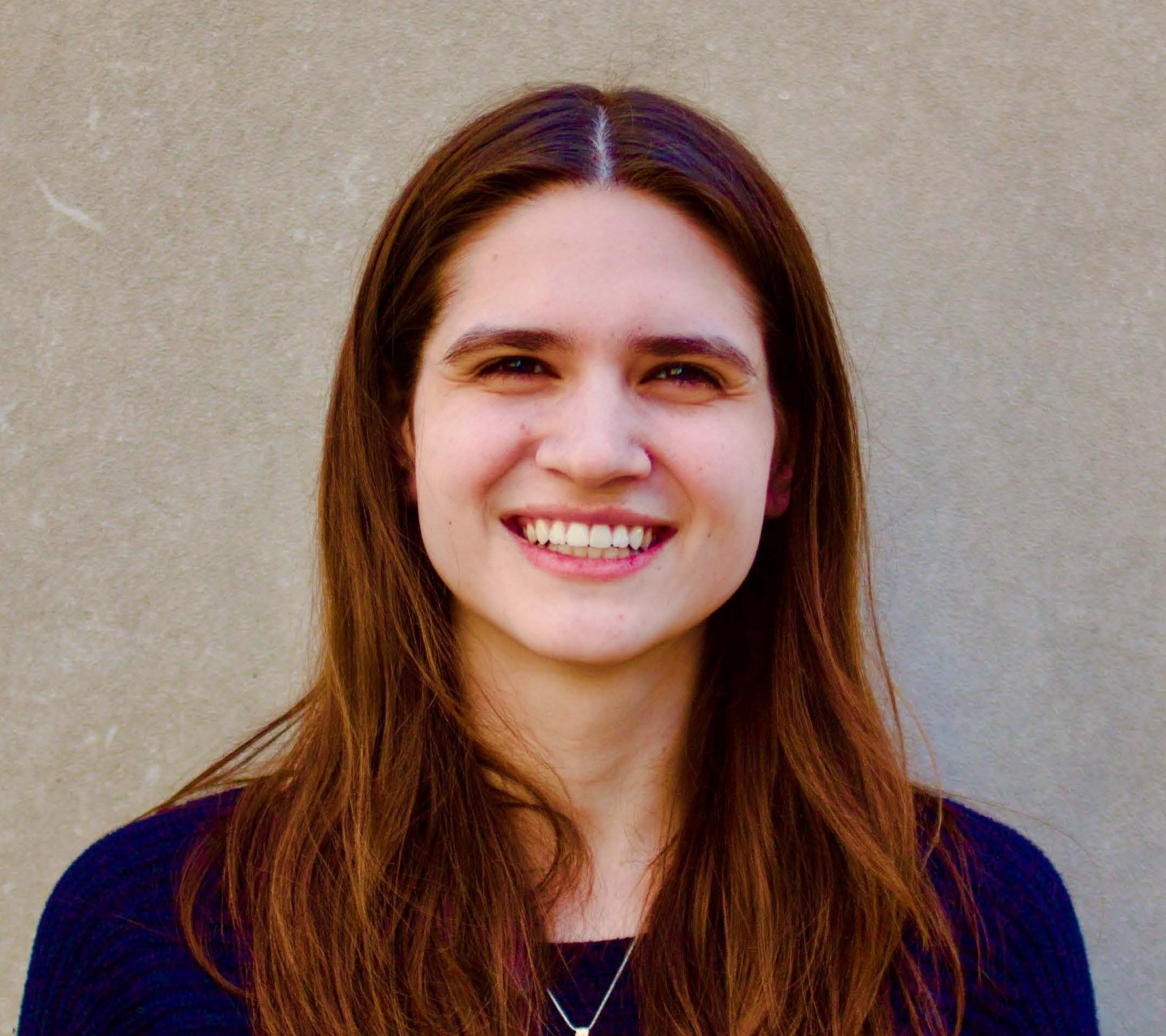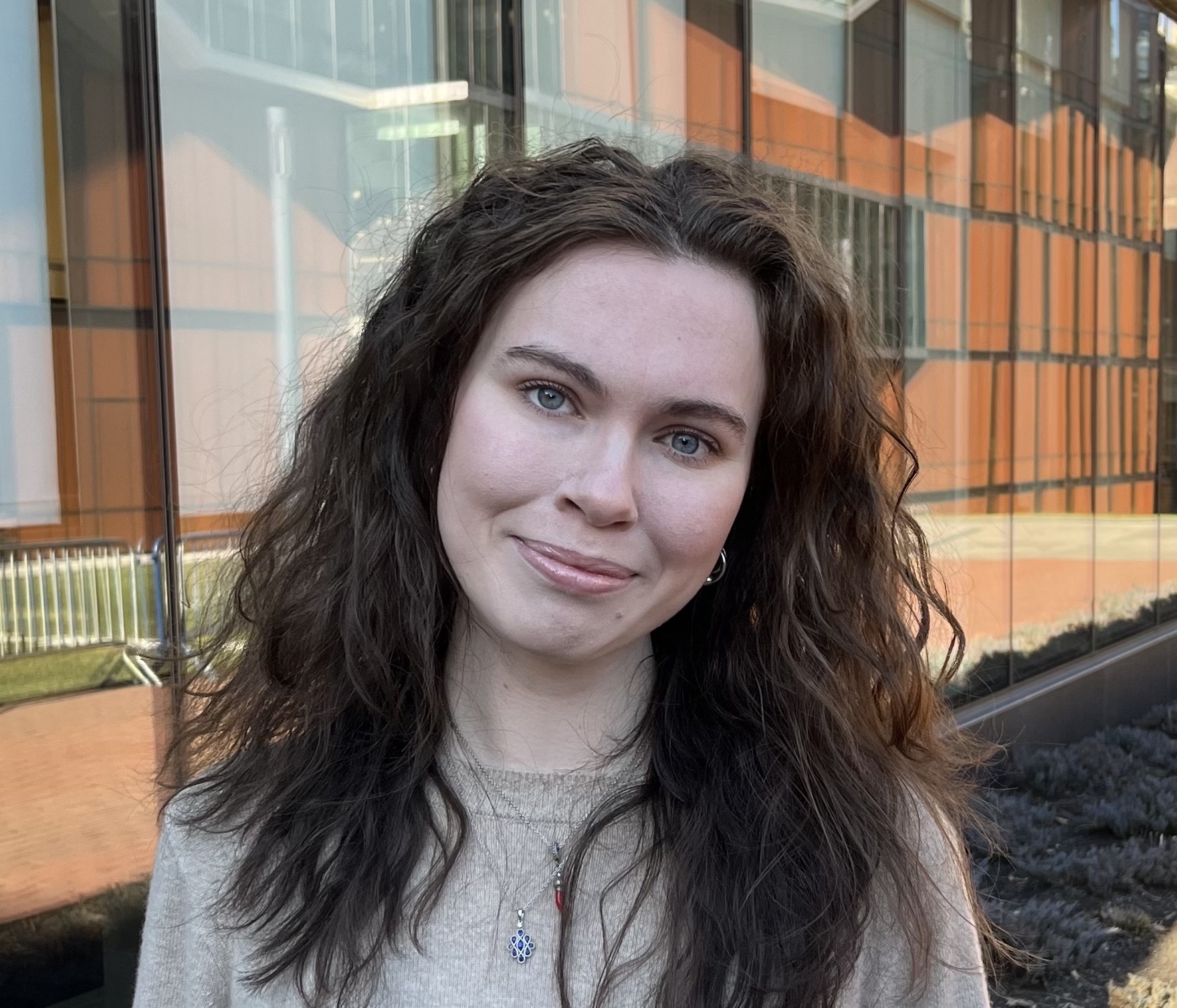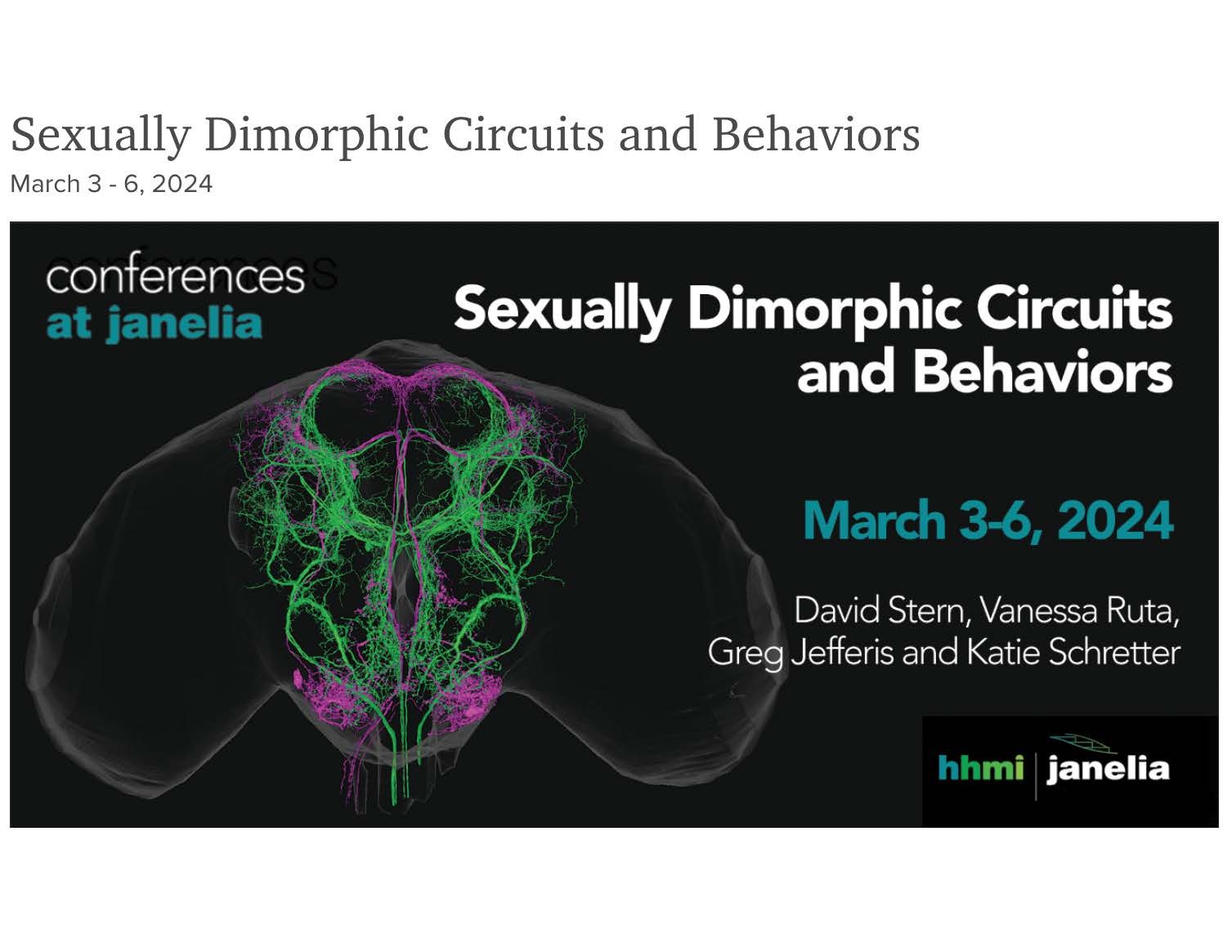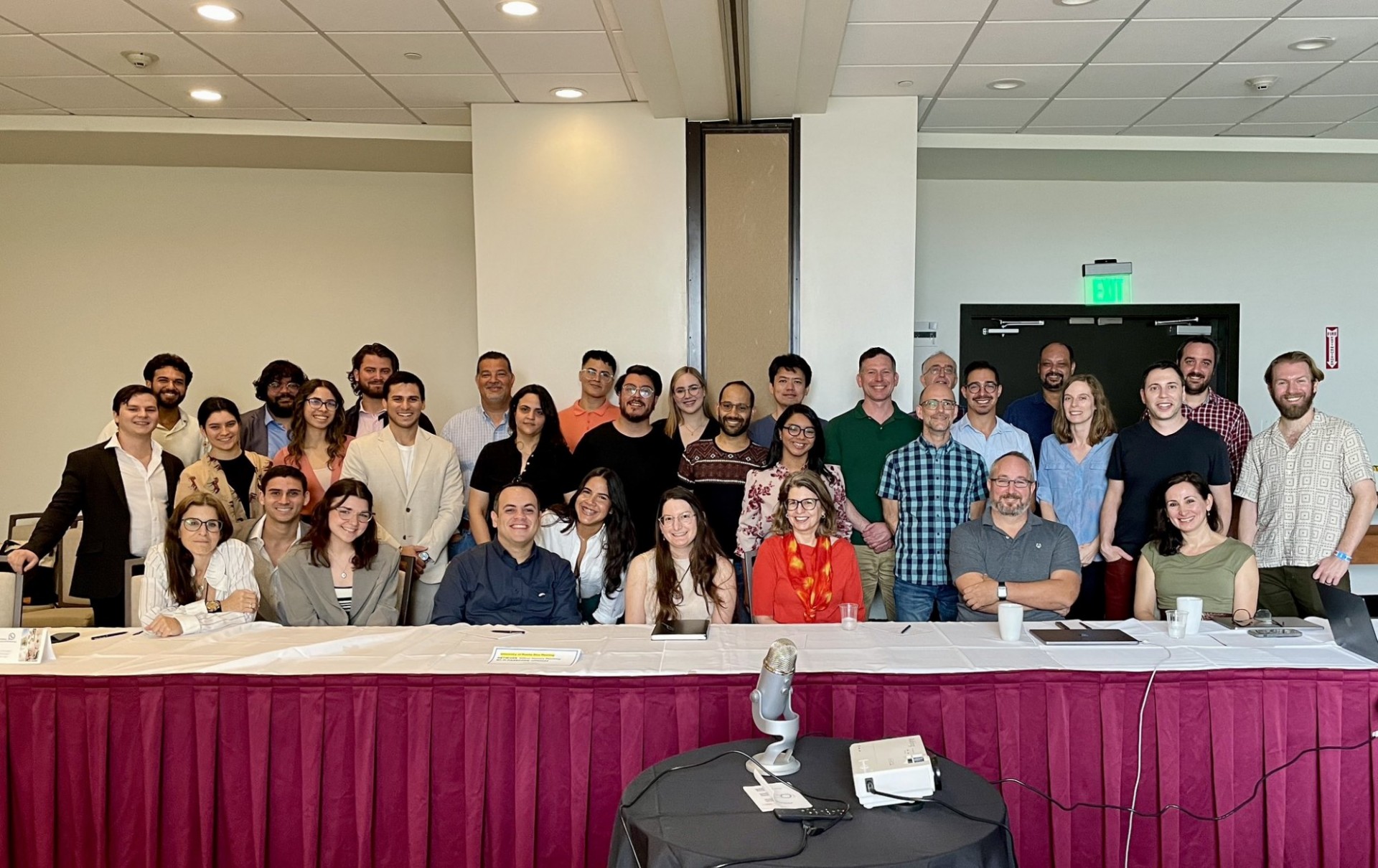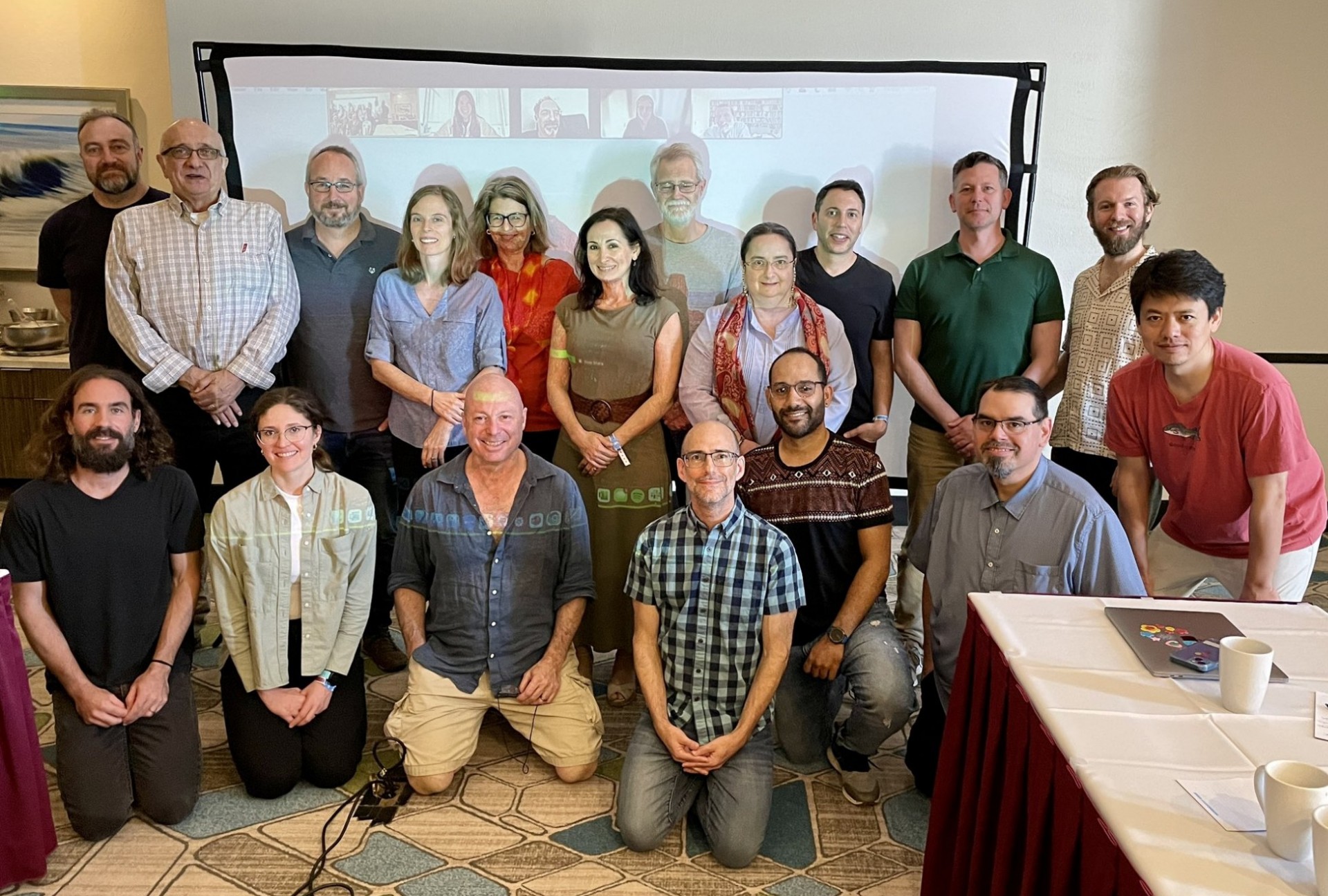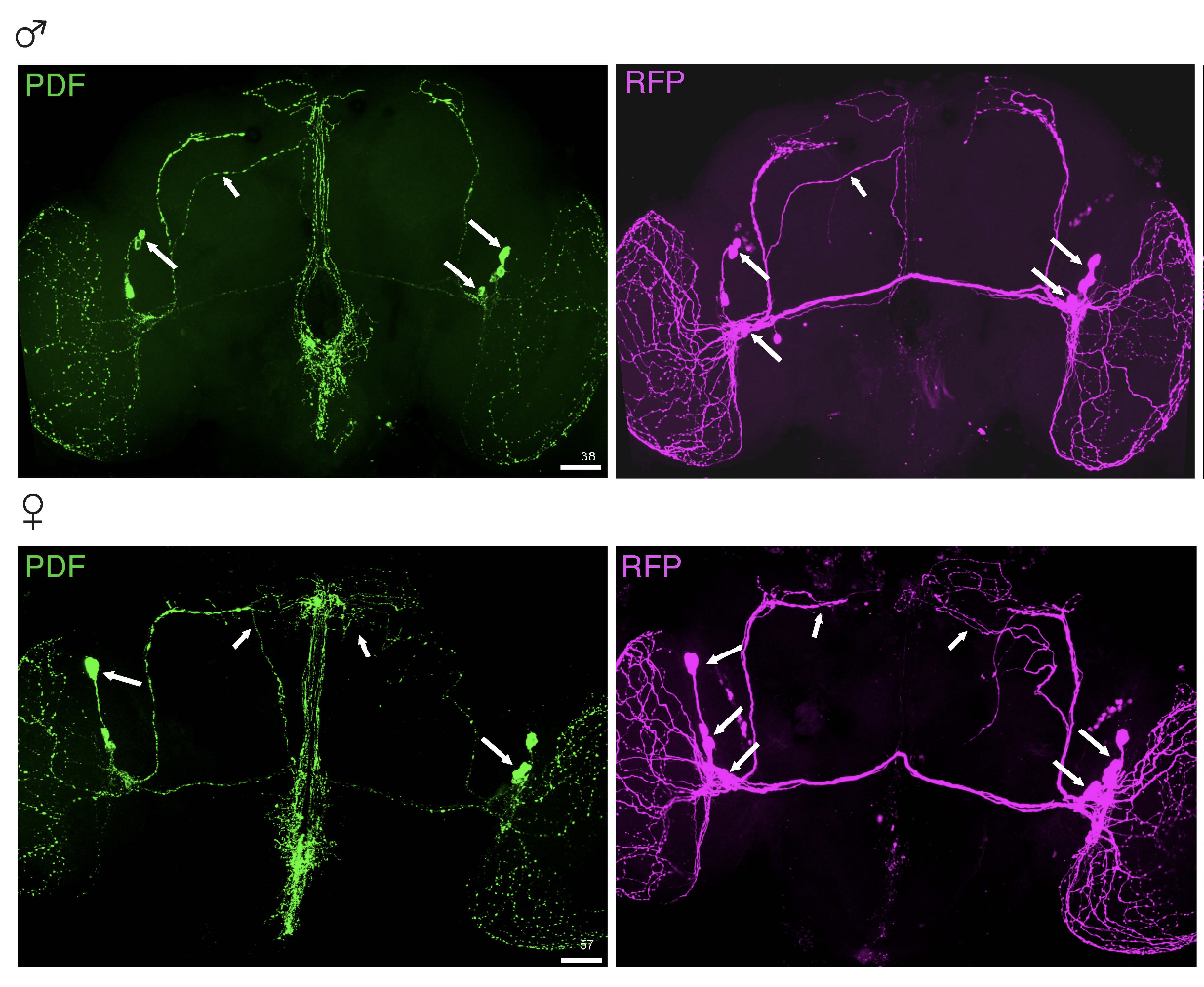In August 2024, our lab will be relocating to the Department of Biology at Indiana University.
Our new lab website is coming soon!
Please note that the current website will not be updated after Summer 2024.
Grace, Eva, and Aishwarya presented posters during the SRBR 2024 meeting in San Juan, Puerto Rico.
Seminar at the Center for the Physics of Biological Function.
Wonderful to meet the faculty and the students, especially the women in physics group.
Thank you very much Sophie Dvali for the invitation!
Kiara has received a Fulbright Fellowship to conduct research in Brazil. Congratulations, Kiara!
Her project will focus on the relationship between circadian disruption and postpartum depression. More specifically, she will investigate the efficacy of blue light therapy as a potential treatment for this type of depression.
Grace will be joining the Ph.D. program in Biomedical Sciences through the Hopkins-Janelia Cross-Disciplinary Graduate Program. Congratulations, Grace! We are very proud of you.
Thank you very much to the organizers!
https://www.janelia.org/you-janelia/conferences/sexually-dimorphic-circuits-and-behaviors
Maria gave a talk at the UC San Diego Center for Circadian Biology (CCB) Symposium in San Diego, CA
Wonderful to meet the faculty and students from the Neurobiology Institute at UPR.
Thank you so much for the invitation!
FLNDR Organizers
Gal Haspel (Department of Biological Sciences, New Jersey Institute of Technology)
Eduardo J. Izquierdo (Cognitive Science Program, Indiana University Bloomington)
Aurel A. Lazar (Department of Electrical Engineering, Columbia University)
Eva A. Naumann (Department of Neurobiology, Duke University)
Stefanie Hampel (Institute of Neurobiology, University of Puerto Rico )
Andy Seeds (Institute of Neurobiology, University of Puerto Rico )
The circadian system regulates the timing of multiple molecular, physiological, metabolic, and behavioral phenomena. In Drosophila as in other species, most of the research on how the timekeeping system in the brain controls timing of behavioral outputs has been conducted in males, or sex was not included as a biological variable. The main circadian pacemaker neurons in Drosophila release the neuropeptide Pigment Dispersing Factor (PDF), which functions as a key synchronizing factor in the network with complex effects on other clock neurons. Lack of Pdf or its receptor, PdfR, results in most flies…

